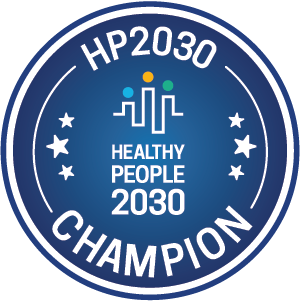Promising Practices
The Promising Practices database informs professionals and community members about documented approaches to improving community health and quality of life.
The ultimate goal is to support the systematic adoption, implementation, and evaluation of successful programs, practices, and policy changes. The database provides carefully reviewed, documented, and ranked practices that range from good ideas to evidence-based practices.
Learn more about the ranking methodology.
Filed under Evidence-Based Practice, Health / Heart Disease & Stroke
Goal: The goal of the Hartslag Limburg intervention is to reduce heart disease among low-income, high-risk community members.
Filed under Effective Practice, Health / Physical Activity, Adults, Older Adults
Goal: The goal of the Healthy Communities Walking Program is to reduce the occurrence of preventable chronic diseases, especially those associated with being overweight, by assisting participants in setting up exercise regimes and encouraging healthy eating.
Filed under Good Idea, Health / Children's Health, Children, Families
Goal: Healthy for Life in Sonoma County is a pilot school-based intervention that seeks to reduce childhood obesity, increase student physical activity, and improve student access to nutrition and medical resources.
Filed under Evidence-Based Practice, Health / Immunizations & Infectious Diseases, Women, Racial/Ethnic Minorities, Urban
Goal: Healthy Love seeks to provide a safe, culturally tailored intervention for heterosexual black women to reduce their disproportionately high risk of transmitting and contracting HIV and other STDs. Healthy Love aims to encourage sexual abstinence, HIV testing, and receipt of test results; increase women's condom usage during vaginal sex with male partners; and reduce the number of women's sex partners and unprotected anal and vaginal sex with male partners. Healthy Love also seeks to improve HIV/STD knowledge, self-efficacy for using condoms, intentions to use condoms, and attitudes towards condoms.
Impact: Healthy Love increased participants' likelihood of using condoms, being tested for HIV, and receiving their test results. The intervention also reduced participants' self-described actions with male partners that can increase black women's risks for HIV infection.
Filed under Effective Practice, Environmental Health / Toxins & Contaminants, Children, Adults, Families
Goal: The goal of the Healthy Places Coalition is to advance public health involvement in land-use and transportation planning in order to ensure that all neighborhoods in California promote the opportunity to live a healthy life.
Filed under Evidence-Based Practice, Health / Wellness & Lifestyle, Women, Men
Goal: The goal of Healthy Relationships is to reduce the risk of HIV transmission by people who know they are HIV-positive by reducing the frequency with which they have unprotected sex.
Impact: Healthy Relationships seeks to develop decision making and problem making skills to reduce the risk and transmission of HIV through behavioral intervention. An intervention study resulted in significantly less unprotected intercourse and greater condom use with lower estimated HIV rates post-intervention.
Filed under Good Idea, Health / Children's Health, Children, Families
Goal: The program’s goal is to identify children at risk for developmental or behavioral problems and to connect them to existing community resources.
HIV/STD Risk Reduction Interventions for African American and Latino Adolescent Girls (Philadelphia)
Filed under Evidence-Based Practice, Health / Adolescent Health, Teens, Women, Racial/Ethnic Minorities, Urban
Goal: The goal of this intervention was to reduce self-reported unprotected sexual intercourse among African American and Latino adolescent girls.
Impact: Skill-based HIV/STD interventions can improve condom-use and reduce sexual risk behaviors, along with STD rates, among African American and Latino teen girls in clinical settings.
Home Again: A Ten Year Plan to End Homelessness in Portland and Multnomah County (Portland and Multnomah County, OR)
Filed under Effective Practice, Economy / Housing & Homes, Urban
Goal: The goal of this program is to end homelessness in the City of Portland and Multnomah County by 2015. As efforts to end homelessness continue, city and county officials will focus on nine actions. Programs throughout the county will address moving people into Housing First, ending the practice of discharging people into homelessness from jails and hospitals, improving outreach, emphasizing permanent solutions, increasing the housing supply, creating new partnerships, improving the rent assistance system, increasing economic opportunity for homeless people and implementing new data collection technology.
Filed under Evidence-Based Practice, Community / Public Safety, Older Adults
Goal: The mission of the program is to shape the evolving health system by developing and spreading high-value models of community-based care and self-management for diverse populations with chronic conditions.

